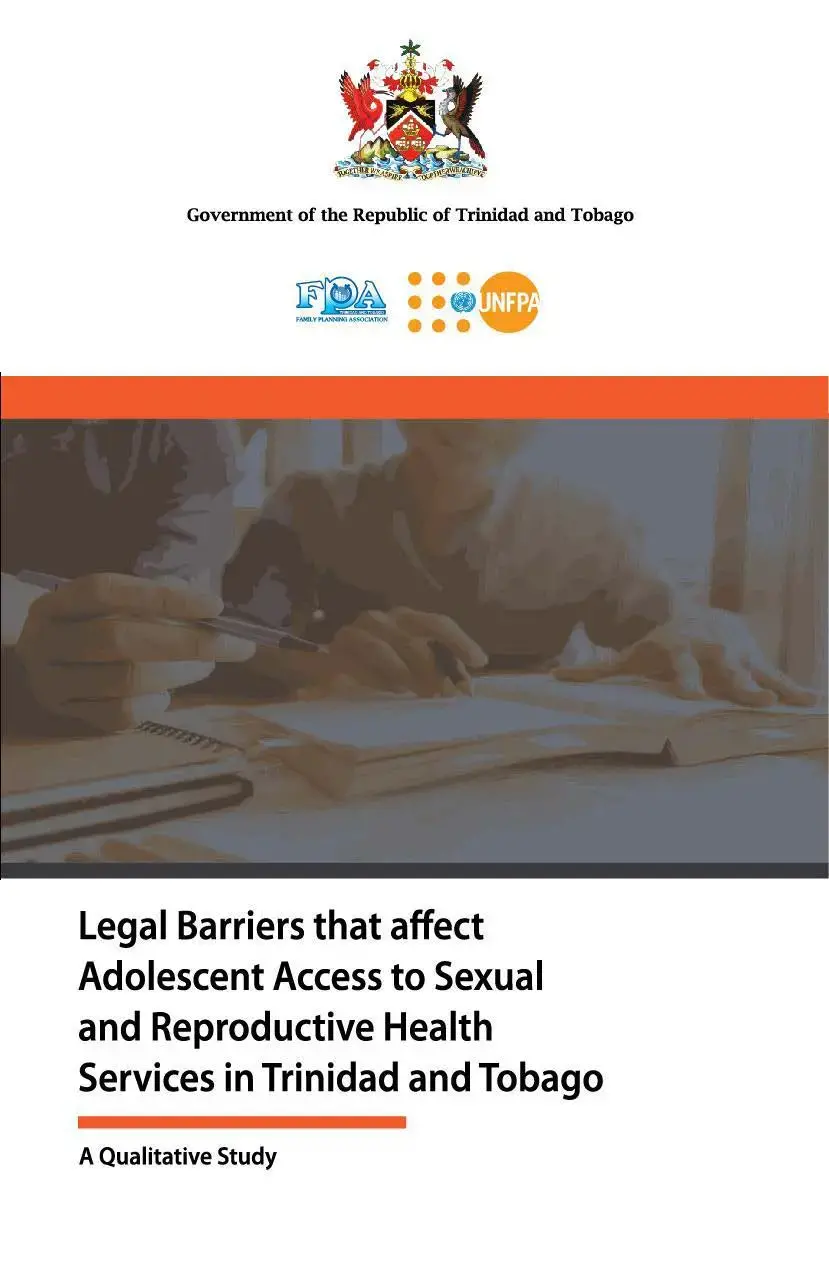Trinidad and Tobago's legislative framework, which establishes the age of sexual consent as 18, prevents adolescents under the age of 18 from accessing Sexual and Reproductive Health (SRH) services and information. Legal Barriers that affect Adolescent Access to Sexual and Reproductive Health Services in Trinidad and Tobago is a qualitative study of minors and service providers undertaken to generate evidence on the legislative gaps and on the factors that facilitate as well as hinder adolescents' access to SRH services and information. This research has been conducted with the intent of building knowledge and capacity to respond to adolescents' SRH needs, as well as informing policymakers in developing policy and legislative reform.
The research showed three underlying themes in the context of Trinidad and
Tobago:
- adolescents are aware of the legal barriers to accessing SRH services and information;
- adolescents can circumvent the law; and
- some adults, including SRH service providers, may also contravene the law to faci litate services for the youth.
Throughout the research, both adolescents and service providers had identified legal barriers to adolescents' access to SRH services and information. Participants in the research asserted that the age of consent (18 years old) to sexual activities had, at times, caused more harm than good by preventing service providers from effectively assisting adolescents without the knowledge of their parents and/or guardians.
The service providers elaborated that the law on age of consent and mandatory reporting as well as the lack of policies to meet the demand for adolescents' access to contraceptives, STI testing and SRH information, had prevented them from effectively providing the necessary services to adolescents. The fear of violating the law often led service providers to take a deterrence-oriented approach to adolescents' SRH. Even where the service providers were sympathetic to the adolescents' needs and wished to assist them, the restrictive and one-dimensional agency policies on SRH and the lack of resources including commodities prevented them from providing the needed services.





